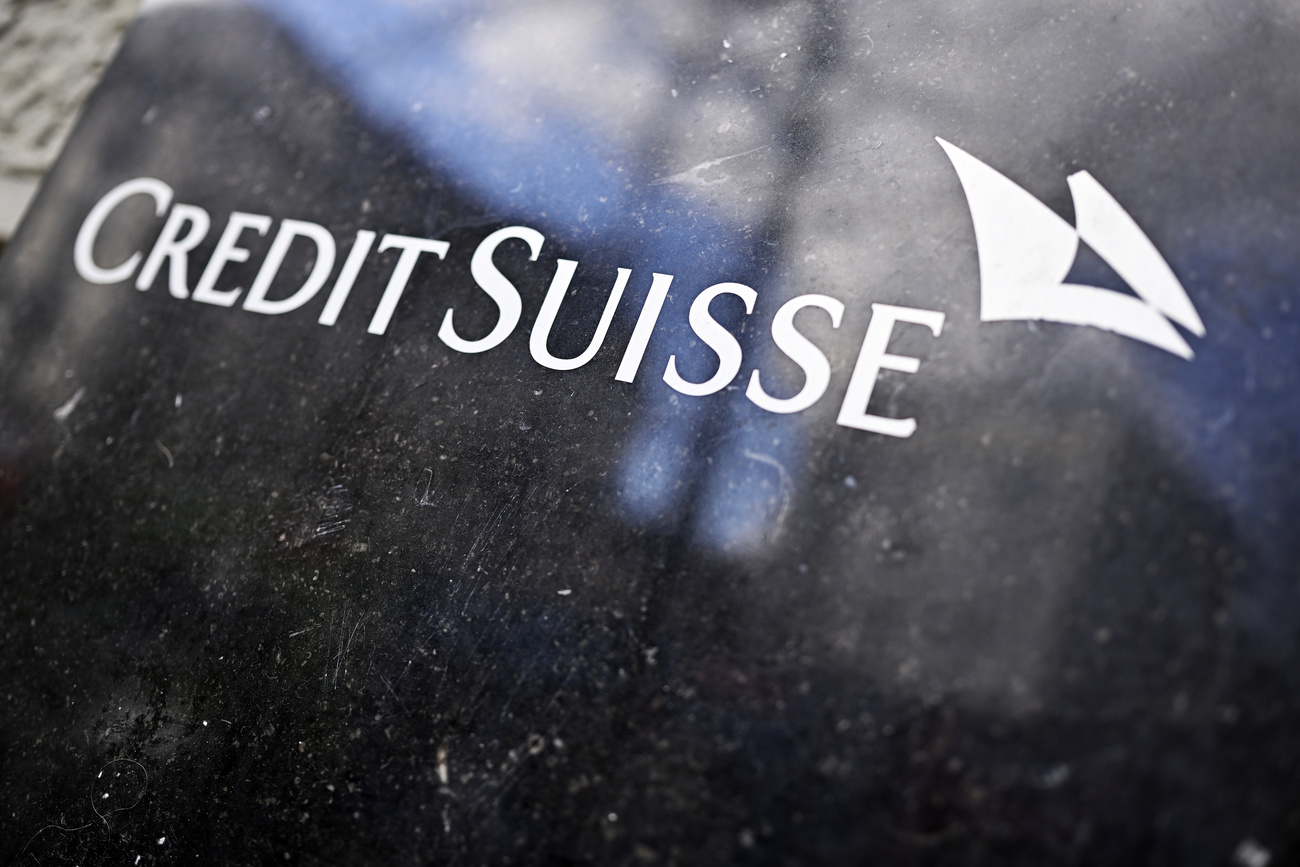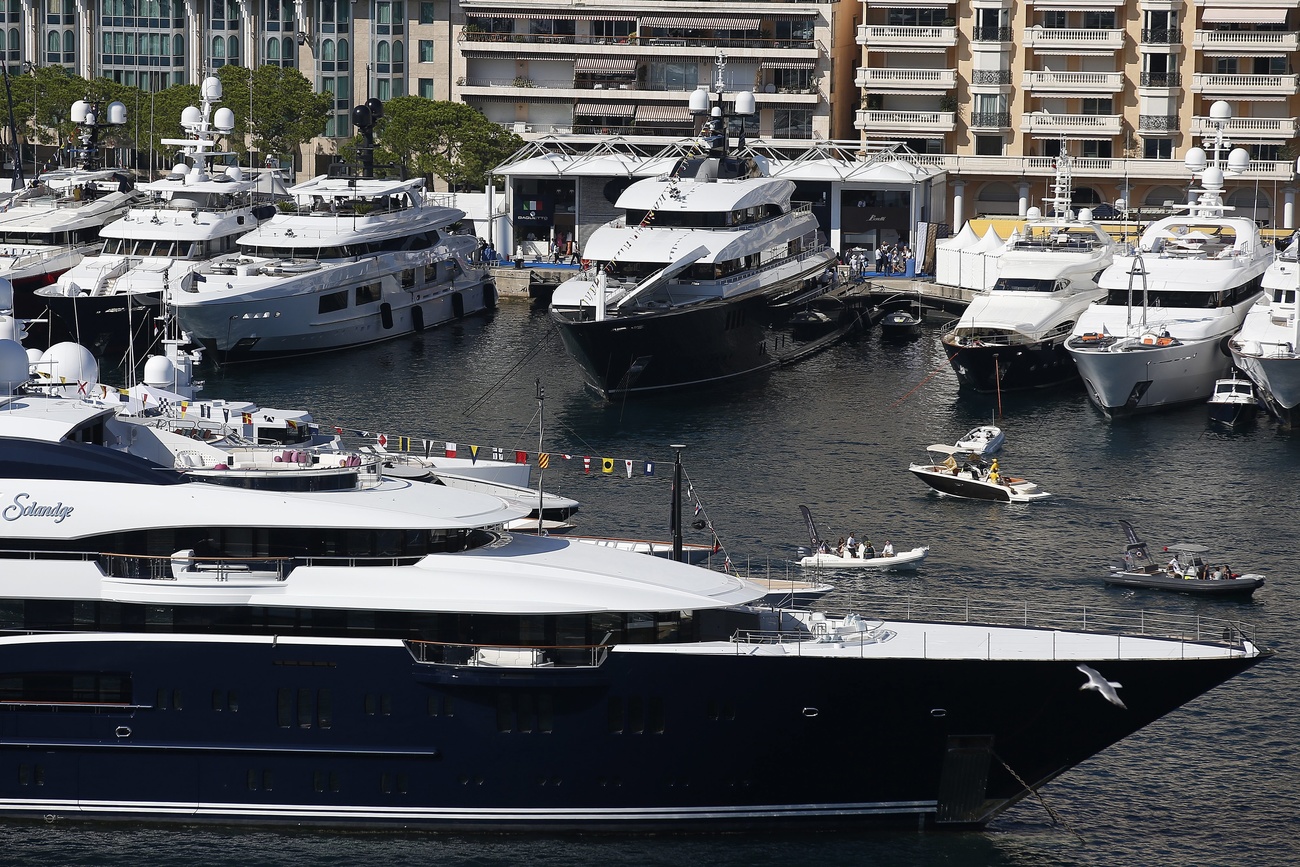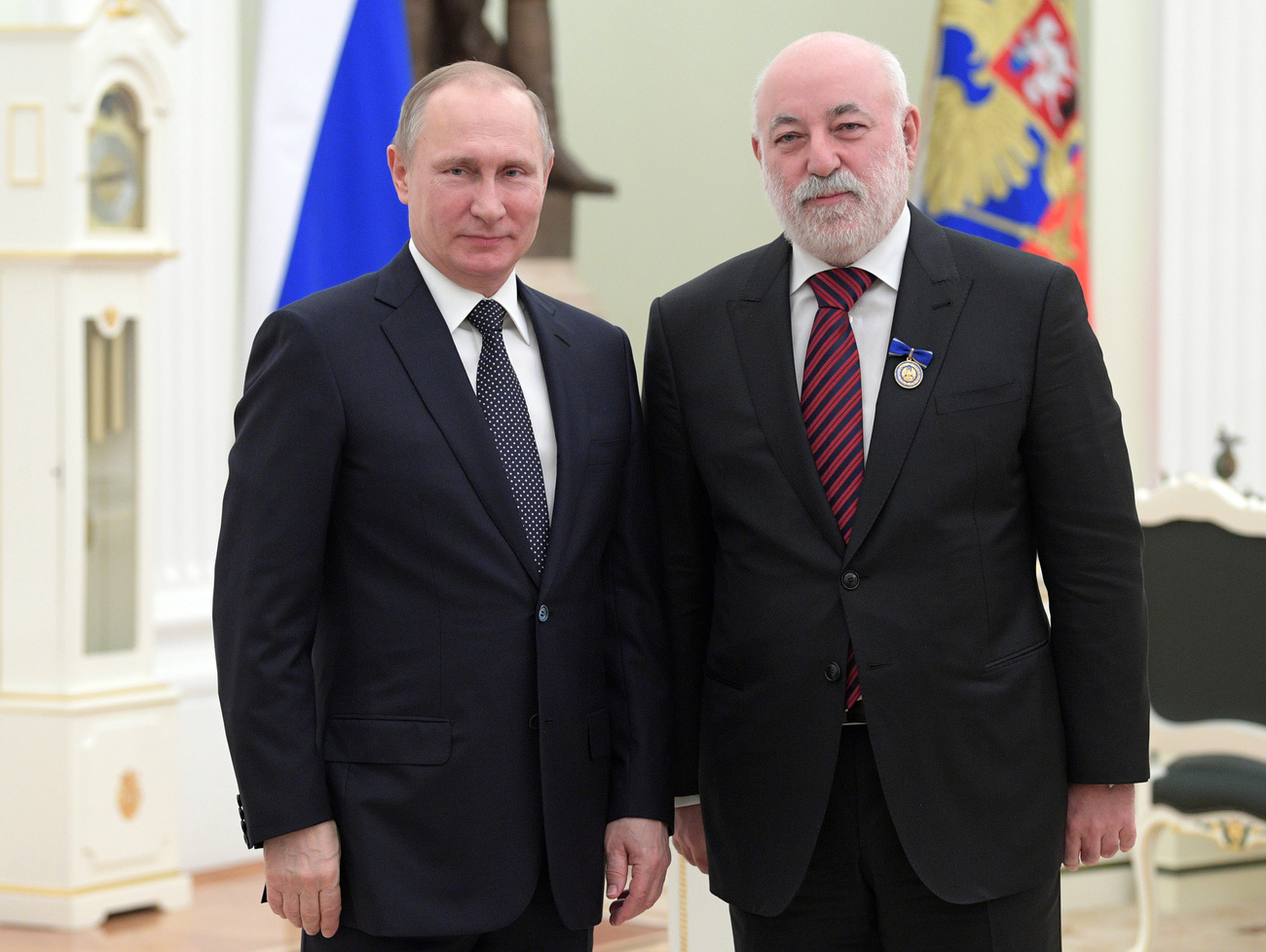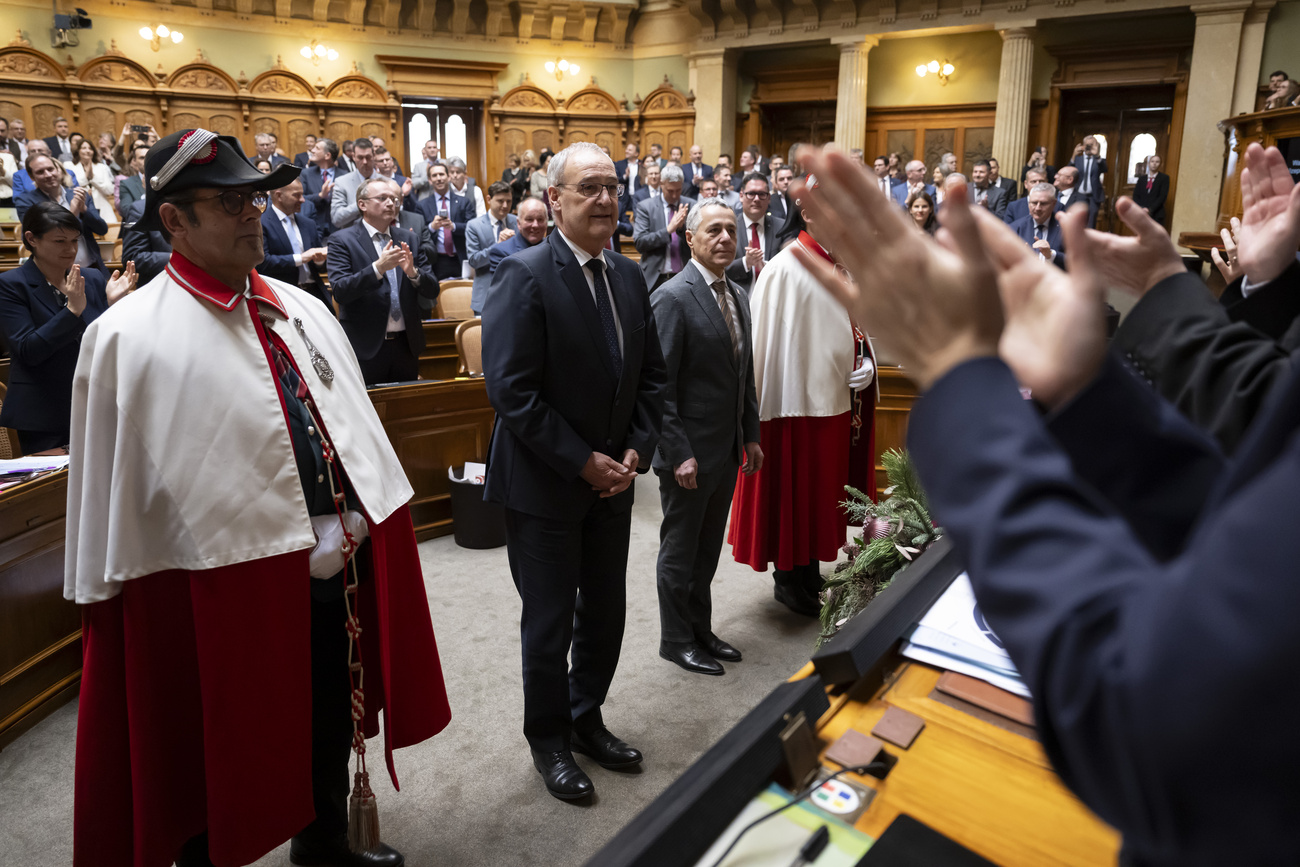
Credit Suisse denies hiding assets of oligarchs

Swiss bank Credit Suisse says a request for investors to destroy certain documents is “in no way linked to the recent implementation of additional sanctions” on Russia.
The statement by Credit SuisseExternal link comes after a report by the Financial Times earlier this week, claiming the bank had sent letters to investors requesting they destroy documents relating to the securitisation of loans backed by “jets, yachts, real estate and/or financial assets”.

More
Credit Suisse asks investors to destroy documents linked to oligarch yacht loans
The Financial Times had revealed last month that a group of hedge funds had taken over some of the default risk relating to $2 billion (CHF1.84 billion) of Credit Suisse loans to “oligarchs and tycoons”.
In this original report, the newspaper said 12 defaults on such yacht and aircraft loans in 2017 and 2018 were “related to US sanctions against Russian oligarchs”.
A follow-up article this week alleged that the bank had later asked investors to destroy documents relating to the deal.
The article went on to say that “several investors that passed on the deal said their concerns around the transaction had only heightened after the raft of sanctions recently placed on Russian oligarchs.”
Market practice
However, in its response on Thursday, Credit Suisse said that the request sent to investors to destroy documents was due to a non-disclosure agreement consistent with “market practice”.
“Reminding parties to destroy confidential information is good housekeeping and good data hygiene. The transaction and the request to non-participating investors to destroy confidential data are entirely unrelated to the ongoing conflict in Eastern Europe.”
The bank also said that the data in question contained no client details, and was concerned only with “portfolio statistics and performance modelling related to the underlying balance sheet positions”.
It also said that no client data had been erased within the bank itself.

More
The Russian oligarchs’ billions frozen in Swiss banks
Legal case
The statement also came after a Swiss Social Democrat politician Carlo Sommaruga raised the issue on Thursday to the attorney general’s office, asking for an investigation into the information in the Financial Times article.
Sommaruga claims that if the newspaper reports are accurate, then Credit Suisse may have acted to hide certain assets belonging to Russian oligarchs, to help them avoid the recent international sanctions.
On Monday this week, and after some initial hesitation, Switzerland joined the European Union sanctions against Russian banks and individuals that are aimed at weakening the Russian economy after its invasion of Ukraine.
The office of the attorney general told the Le Temps newspaper on Friday that Sommaruga’s complaint would be examined according to standard procedure, and that a complaint did not automatically mean the opening of a legal case.

In compliance with the JTI standards
More: SWI swissinfo.ch certified by the Journalism Trust Initiative































You can find an overview of ongoing debates with our journalists here . Please join us!
If you want to start a conversation about a topic raised in this article or want to report factual errors, email us at english@swissinfo.ch.